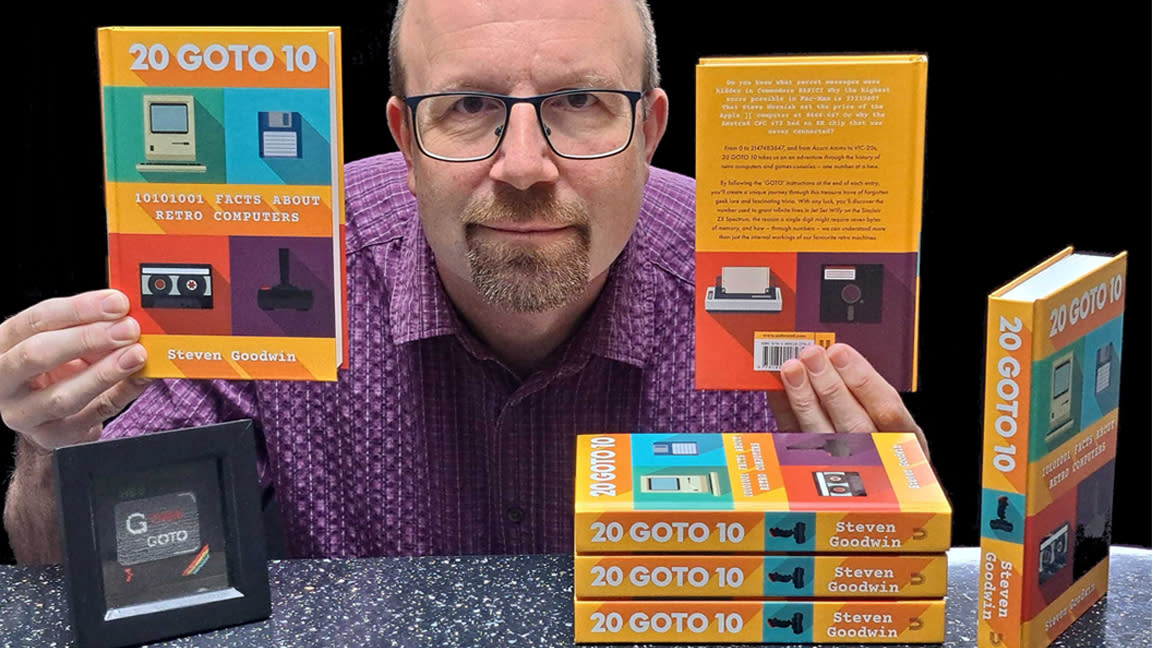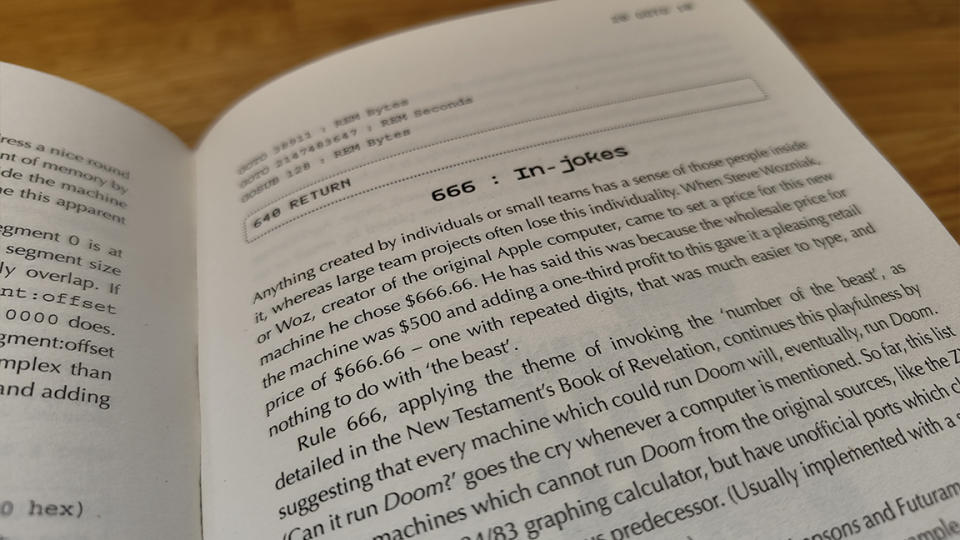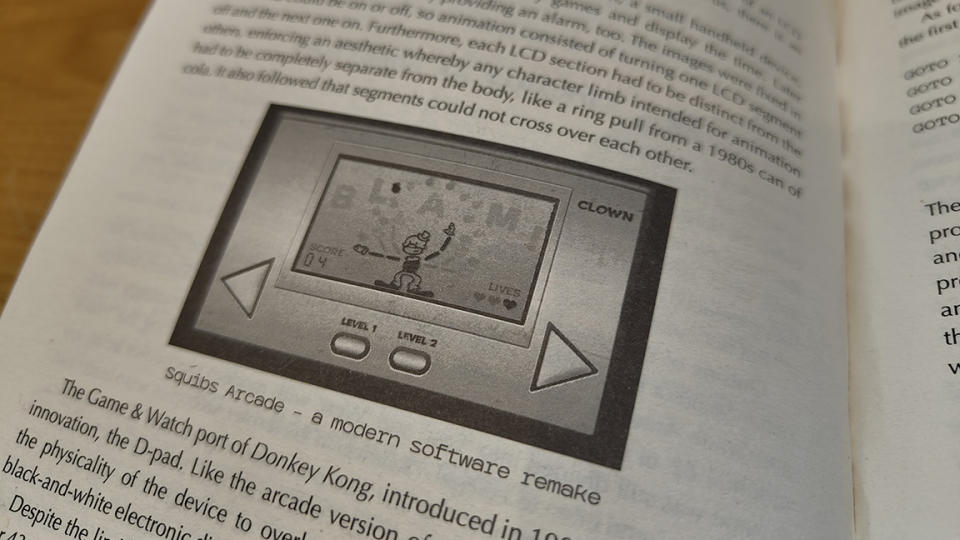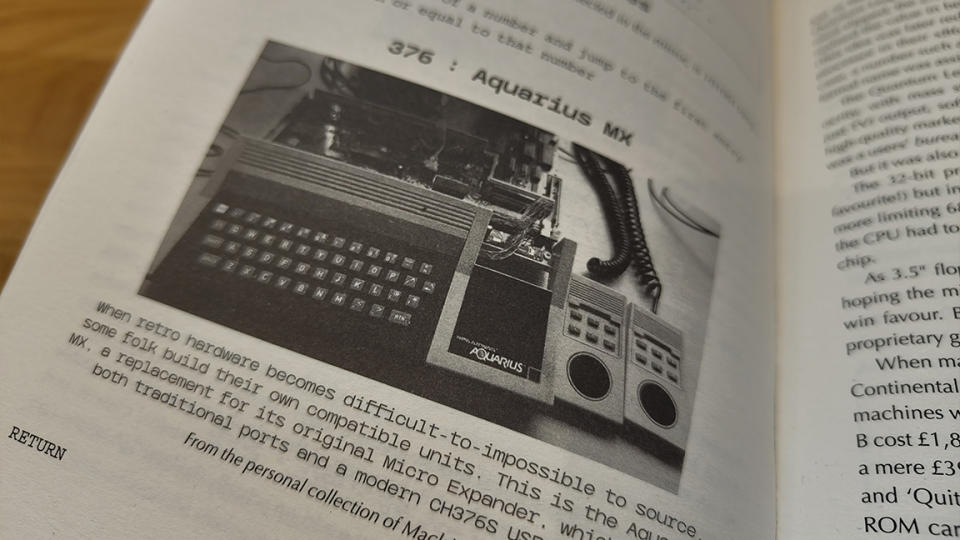This retro computers trivia book is so strange, I just had to meet the author

- Oops!Something went wrong.Please try again later.
Most books about retro computers can be a little samey, a bit dry and functionary. Steven Goodwin's 20 GOTO 10: 10101001 facts about retro computers is a little different; it's a celebration of classic computers from ZX Spectrum to Apple and, well… everything, but filtered through the numbers that represent these cherished machines and the weird secret that are hidden within.
The book is strange; there's no beginning middle or end, like a classic choose your own adventure you start reading at anywhere, pick a number that appeals and follow its route through history. The reason why Steve Wozniak priced the Apple ][ computer at $666.66? I now know. Why the highest score in Pac-Man is 3333360? I know, do you? What does the number in ZX81 mean? That's for me and Goodwin to know.
I've read and re-read 20 GOTO 10 and constantly find new and strange secrets of retro gaming's past
20 GOTO 10 is a book written by a geek for geeks, and how numbers anchor and reveal the secrets of computing's past. It's also a game, a fun and engaging play on the rules of roleplay. I've read and re-read 20 GOTO 10 and constantly find new and strange secrets of retro gaming's past; there's a many routes to uncovering its computing secrets and even Easter Eggs and 'end game' pages. For those of a certain age who remember typing our BASIC code from 1980's magazines, there's even a game or two hidden in here run.
You can buy 20 GOTO 10 now, from Amazon and other online stores, or find out more at publisher Unbound's website. If you love old tech, read our guide to the best retro game consoles. Below I quiz author Steven Goodwin, who made games for EA and Microprose, about the book.
Steve Goodin chats about retro computers

How did you come up with the idea?
"It started, in 2014, as a series of amusing anecdotes about retro technology, the games, and the people. Over the years I realised the only thing connecting these facts were numbers. A year or two after this I made the connection that some numbers had multiple entries, and some near identical topics had different numbers.
"So, with the realisation that everyone has attempted to write one BASIC program in their life, it made sense to connect each entry through GOTO statements and - given that everyone types in a program of 10 PRINT "" / 20 GOTO 10 - the title “20 GOTO 10” was obvious to me, and the last piece of the puzzle fell into place. Over 8 years the project had moved from anecdotes to anecdata!"
Which facts surprised you the most?
"So many facts surprised me - some from before I started writing, to some that came along quite late in the process. There was the case where a single line of software was fixed in the ZX81 BASIC ROM, by attaching a brand new piece of hardware to the machine, because it was the most effective solution!
"An old Spanish import law classified 64K machines as 'toys', so Amstrad cheated the system with its '72K' model… which wasn't really 72K! And how a designer decided to make his circuit board _more_ complicated, simply because he was using a chip called the 8282, and he could design it in a way that used 82 chips… to pick just three."

Is there anything that didn't make it and why?
"There were hundreds of facts and stories that didn't make it, due to space mostly. But also due to wanting to get an even spread of machines, I had to limit the tales from the Sinclair / Commodore rivalries as someone could write an entire book about them! (Not me, I hasten to add!)"
Why do you think retro computers have become so loved?
"For those of us who remember when 'retro computers' were called simply 'computers' it takes us back to an age when computers were fun and interesting - not ridden with bugs, spyware, malware, security glitches, and who knows else!
"But the younger demographic are also recognising that these machines are simple enough to be understood - in their entirety - by a single person, something that's no longer possible. This gives us all a chance to dig deep and understand the clever and innovative solutions they employed."

Do you have a favourite retro computer design, and why?
"The classic 'cheese wedge' design of the ZX81 will always be in my top 3… despite being totally impractical for long-term work. Before then, computers looked like a geeky toy with exposed circuits, lights, and switches reminiscent of a 1960s sci-fi film. Rick's design reminded us that it _was_ a geeky toy, but that didn't mean it couldn't be stylish in its own way.
"Being a fickle individual, however, means I'll be walking around the museum (The Centre for Computing History, based in Cambridge, where I volunteer) and spot the Mantra 90 out of the corner of my eye, or a Grundy NewBrain, or Kenbak-1, or some other intriguing oddity, and it'll become my favourite machine for the day, as I wonder what the world thought when they first burst onto the scene."
Is there a retro computer that changed everything?
"For me, the lineage of retro computers is a progressive one, like a family tree, which results in a convergence to an impact, rather than a specific machine which changed everything. The usual 'standing on the shoulders of giants' argument, but with many giants.
"The Sinclair machines showed what could be achieved within a price point. The Acorn Archimedes showed that a low power chip, the ARM, could liberate us from the power socket. Combine them with the dash of portability from the Osborne or Epson HX-20, and you have the ingredients that were necessary to make laptops and the mobile phone a reality.
"But from a personal point-of-view, the most important retro computer is alway whichever machine got one involved in the industry - for me, the Sinclair ZX81."
Apple likes to play up to its heritage, is this fair? Where does Apple sit in the lineup of important retro computers?
"Apple has a heritage that includes one of the most interesting machines ever designed - the Apple ][ - the circuitry, engineering, and programming meant that beauty could exist _inside_ a computer.
"Apple later realised that it could also be applied to the exterior casing, but it was that machine - a retro machine, designed by Woz (Steve Wozniak) - which made their fortune, in the first instance. And although it was more popular in the US than the UK, its inner beauty inspired (and continues to inspire) engineers to be creative, so it definitely deserves its place in the top five lineup of important computers.
"Unfortunately, like any big tech company, it is prone to look forward - not back. As a consequence, it holds many retro licenses and artefacts that the community and preservationists would love to access - but won't release, because it doesn't reflect their current mission. Microsoft, Nintendo, and Apple are all guilty of it and so there's always a twinge of regret when those two worlds collide, as they simultaneously play up their heritage and deny its existence."

